In the intricate web of global commerce, semi trucks stand as the indispensable arteries that facilitate the seamless movement of goods. At CarMax Vehicle, we recognize the pivotal role semi trucks play in the economy, and we are committed to advancing their design and functionality to meet ever-evolving demands. This comprehensive exploration delves into the multifaceted world of semi trucks, unraveling their components, types, functionalities, and the innovations driving their future.
What is a Semi Truck?
A semi truck, also known as a tractor-trailer, is a combination of a tractor unit and one or more trailers designed to transport freight. This configuration allows for significant payload capacity, making semi trucks the preferred choice for long-haul transportation. The term “semi” refers to the trailer being only partially supported by the tractor, relying on the wheels at the rear of the tractor and the wheels on the trailer.
Key Components of a Semi Truck
Understanding the anatomy of a semi truck is crucial to appreciating its functionality and versatility. Below is a detailed breakdown of its primary components:
| Component | Description |
|---|---|
| Tractor Unit | The engine-powered unit responsible for pulling the trailer. It contains the cab, engine, transmission, and various control systems. |
| Trailer | The cargo-holding unit attached to the tractor. Trailers come in various types, including flatbeds, refrigerated units, and tankers. |
| Coupling System | The mechanism that connects the tractor to the trailer, typically involving a fifth wheel and kingpin. |
| Wheels and Tires | Semi trucks are equipped with multiple wheels and specialized tires designed for heavy loads and long-distance travel. |
| Braking System | Advanced hydraulic or air brake systems ensure the vehicle can stop safely under heavy loads and at high speeds. |
| Control Systems | Modern semi trucks feature sophisticated control systems for navigation, engine management, and driver assistance. |
| Electrical Systems | These include lighting, communication devices, and other electronics essential for safe and efficient operation. |
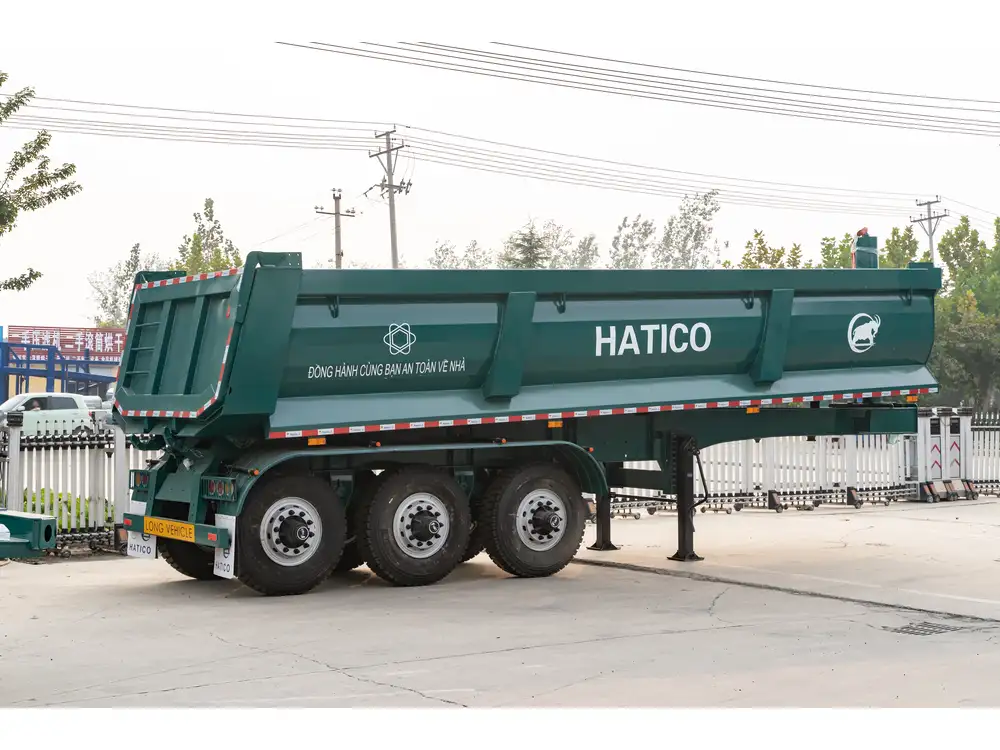
Types of Semi Trucks
Semi trucks are engineered to serve a variety of transportation needs. The diversity in their design allows them to handle different types of cargo efficiently.
Dry Van Trailers
Dry van trailers are the most common type of semi truck trailer. They are enclosed, protecting goods from weather and theft, making them ideal for transporting a wide range of products.
Refrigerated Trailers (Reefers)
Refrigerated trailers maintain specific temperatures, allowing for the transport of perishable goods such as food, pharmaceuticals, and other temperature-sensitive items.
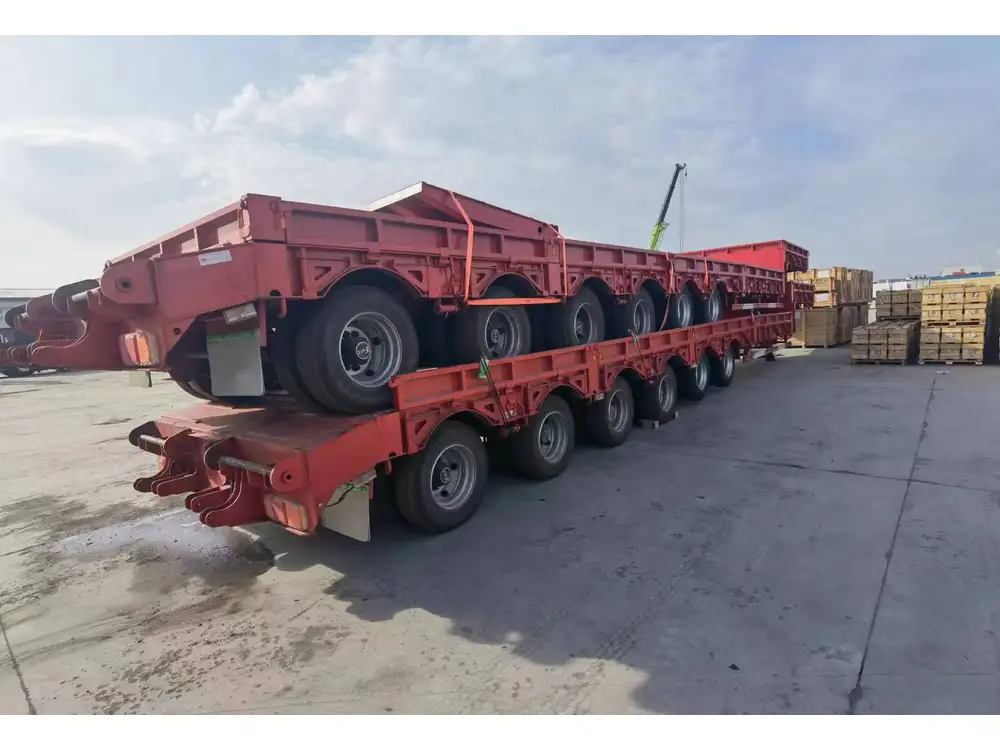
Flatbed Trailers
Flatbed trailers have an open design, facilitating the transport of oversized or irregularly shaped cargo that cannot be easily confined within an enclosed space.
Tanker Trailers
Designed for transporting liquids, gases, or bulk materials, tanker trailers are specialized with containment systems to prevent spills and ensure safe transportation.
Specialized Trailers
Beyond these common types, there are numerous specialized trailers tailored for specific industries, including car carriers, livestock trailers, and more.

The Functionality of Semi Trucks
Semi trucks are engineered for efficiency, durability, and versatility. Their functionality can be examined through various operational aspects:
Payload Capacity
Semi trucks are capable of hauling substantial loads, often exceeding 80,000 pounds, depending on the configuration and type of trailer used. This high payload capacity is essential for bulk transportation in industries such as construction, manufacturing, and retail.
Fuel Efficiency
Advancements in engine technology and aerodynamics have significantly improved the fuel efficiency of semi trucks. Modern designs incorporate aerodynamic features like streamlined cabs and trailer skirts to reduce drag and enhance mileage.

Safety Features
Safety is paramount in semi truck design. Features such as anti-lock braking systems (ABS), electronic stability control (ESC), collision avoidance systems, and advanced driver-assistance systems (ADAS) contribute to safer roadways.
Driver Comfort and Ergonomics
Recognizing the demands of long-haul driving, semi trucks are equipped with ergonomic cabins, comfortable seating, climate control, and advanced infotainment systems to enhance driver comfort and reduce fatigue.
Maintenance and Reliability
Regular maintenance is crucial for the longevity and reliability of semi trucks. Components like engines, transmissions, and braking systems are designed for durability, and manufacturers like CarMax Vehicle prioritize ease of maintenance and access to spare parts.

Innovations in Semi Truck Technology
The semi truck industry is continuously evolving, driven by technological advancements and changing market demands. Key innovations shaping the future include:
Autonomous Driving
Autonomous or self-driving semi trucks promise to revolutionize the transportation industry by enhancing safety, reducing labor costs, and improving efficiency. While fully autonomous trucks are not yet widespread, incremental advancements are steadily paving the way.
Electric Semi Trucks
With growing environmental concerns, electric semi trucks are gaining traction. These vehicles offer reduced emissions, lower operating costs, and quieter operation, making them an attractive option for eco-conscious logistics firms.
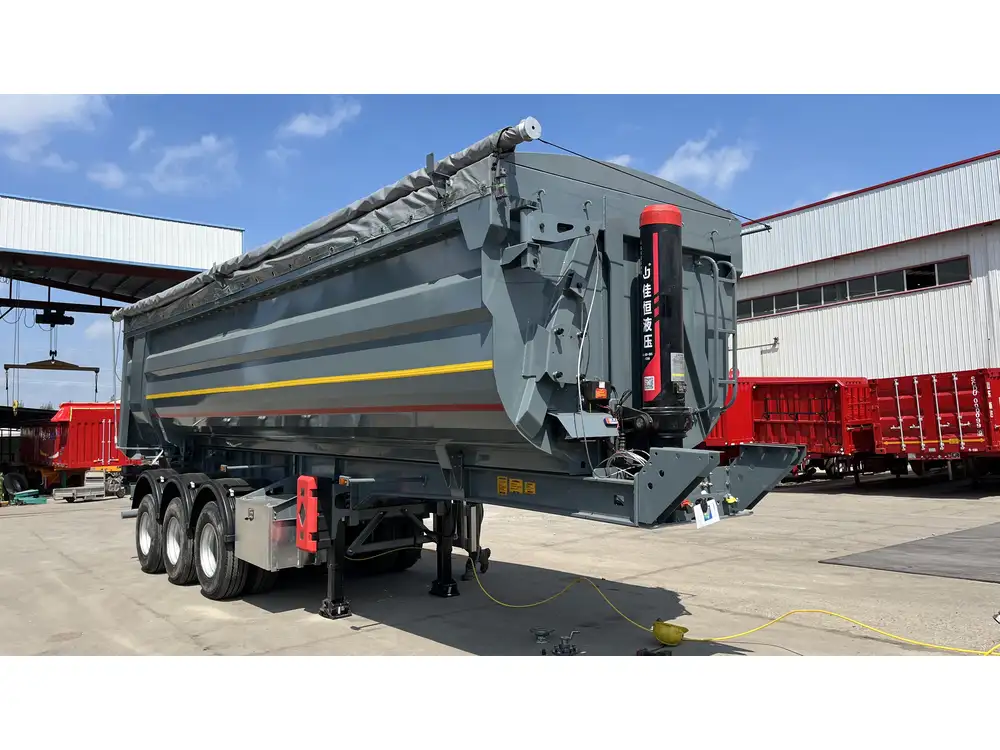
Connectivity and Telematics
Modern semi trucks are equipped with telematics systems that provide real-time data on vehicle performance, location, and driver behavior. This connectivity enables better fleet management, predictive maintenance, and improved operational efficiency.
Advanced Materials
The use of lightweight and high-strength materials in semi truck construction enhances fuel efficiency and payload capacity while reducing overall vehicle weight. Innovations in composites and alloys are contributing to more robust and efficient designs.
Enhanced Driver Assistance Systems
Features such as adaptive cruise control, lane-keeping assistance, and automated parking systems enhance driver safety and convenience. These systems not only reduce the risk of accidents but also improve the overall driving experience.
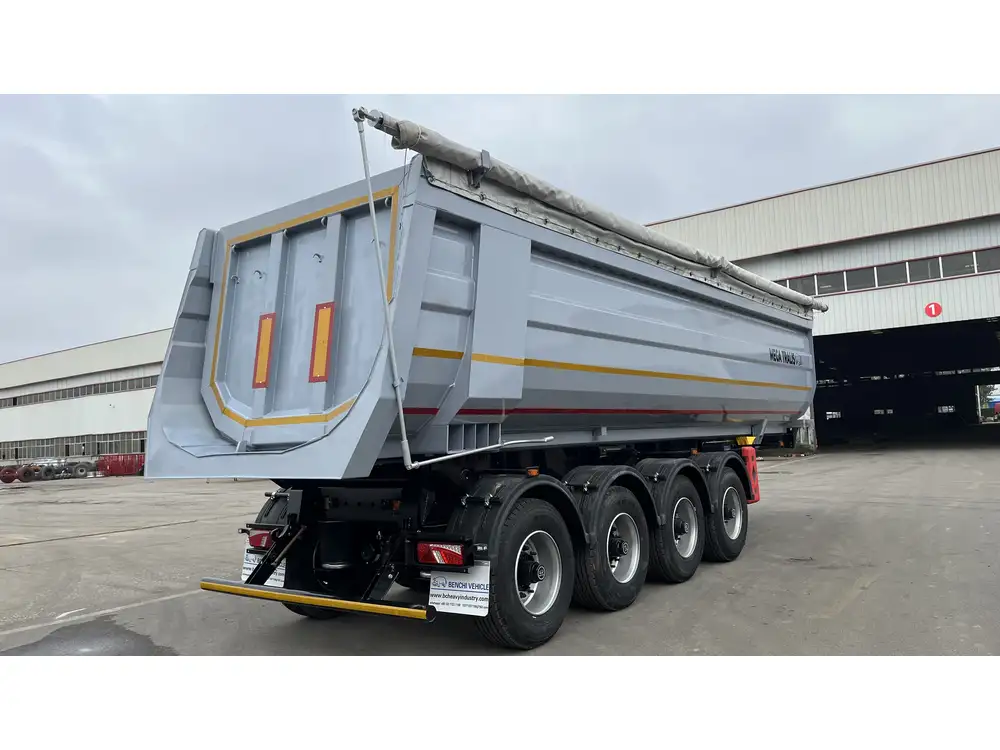
Regulatory Standards and Compliance
Semi trucks operate under stringent regulatory standards that ensure safety, environmental protection, and fair competition. Key areas of regulation include:
Weight and Size Restrictions
Governments impose limits on the maximum allowable weight and dimensions of semi trucks to prevent road damage and ensure safe operation on highways.
Emissions Standards
Environmental regulations mandate reductions in greenhouse gas emissions and other pollutants. Compliance often involves adopting cleaner engine technologies and alternative fuel sources.

Driver Regulations
Regulations governing driver qualifications, hours of service, and safety training are essential to maintaining high standards of safety and professionalism in the transportation industry.
Safety Inspections
Regular safety inspections are mandatory to ensure that semi trucks meet all operational and safety standards. These inspections cover critical components such as brakes, tires, lights, and cargo securement.
The Role of Semi Trucks in the Supply Chain
Semi trucks are integral to the supply chain, serving as the primary mode of transportation for goods between manufacturers, distributors, retailers, and consumers. Their role encompasses several key functions:

Last-Mile Delivery
While traditionally associated with long-haul transportation, semi trucks are increasingly involved in last-mile delivery, especially for large or bulk items that cannot be efficiently handled by smaller vehicles.
Just-In-Time (JIT) Logistics
Semi trucks support JIT logistics by delivering goods precisely when needed, reducing inventory costs and enhancing supply chain efficiency.
Distribution and Warehousing
Semi trucks facilitate the movement of goods between distribution centers and warehouses, ensuring timely replenishment of stock and smooth operations across the supply chain.
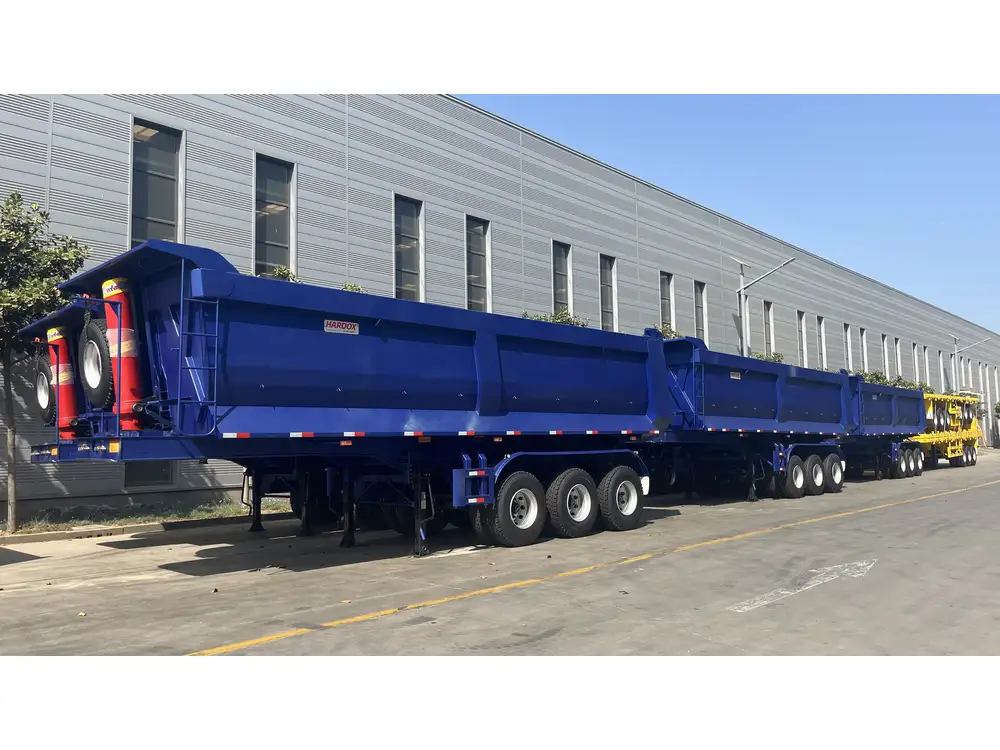
Cross-Border Transportation
International trade relies heavily on semi trucks for transporting goods across borders, connecting global markets and enabling the flow of products between countries.
Choosing the Right Semi Truck for Your Needs
Selecting the appropriate semi truck involves careful consideration of various factors to ensure optimal performance and cost-effectiveness. Key considerations include:
Cargo Type and Volume
The nature and volume of the cargo dictate the type of trailer and tractor needed. For example, perishable goods require refrigerated trailers, while oversized items may necessitate flatbed trailers.
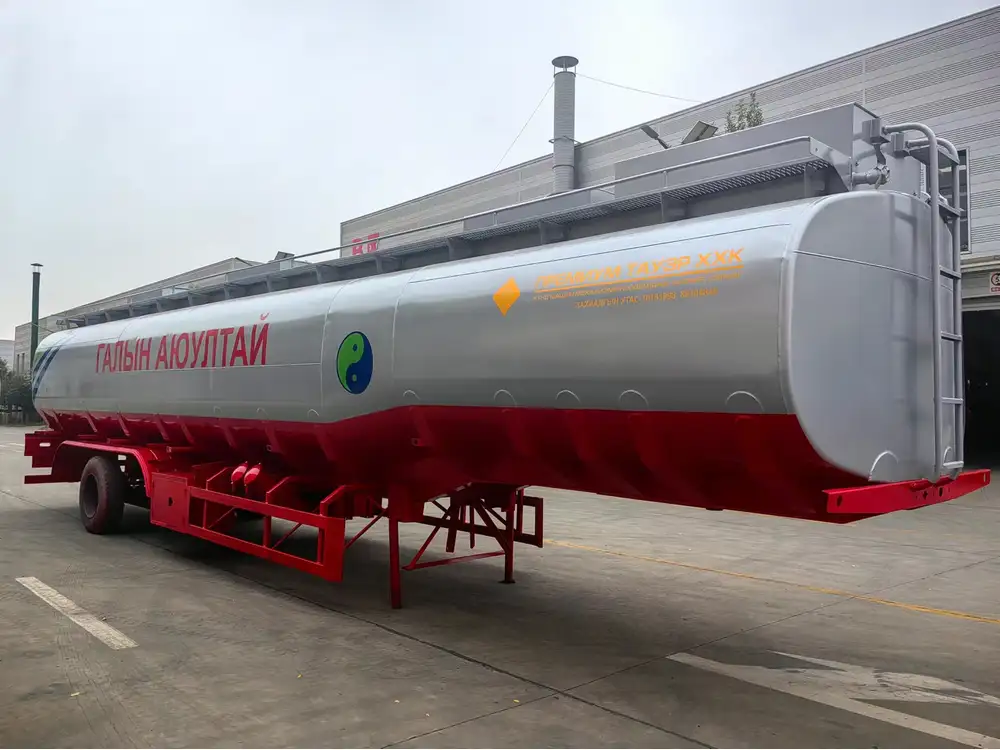
Route and Terrain
The planned routes and terrain influence the choice of engine power, drivetrain configurations, and suspension systems to ensure the truck can handle the specific demands of the journey.
Fuel Efficiency and Operating Costs
Evaluating fuel efficiency and overall operating costs is essential for long-term profitability. Investing in fuel-efficient models and leveraging technologies that reduce consumption can result in significant savings.
Compliance with Regulations
Ensuring that the semi truck meets all relevant regulatory requirements is crucial to avoid fines and ensure smooth operations across different jurisdictions.

Brand Reputation and After-Sales Support
Choosing a reputable manufacturer like CarMax Vehicle guarantees high-quality products and reliable after-sales support, including maintenance services and the availability of spare parts.
Maintenance Best Practices for Semi Trucks
Proper maintenance is vital to ensure the longevity, safety, and efficiency of semi trucks. Here are some best practices:
Regular Inspections
Conduct routine inspections of critical components such as brakes, tires, lights, and fluids to identify and address issues promptly.
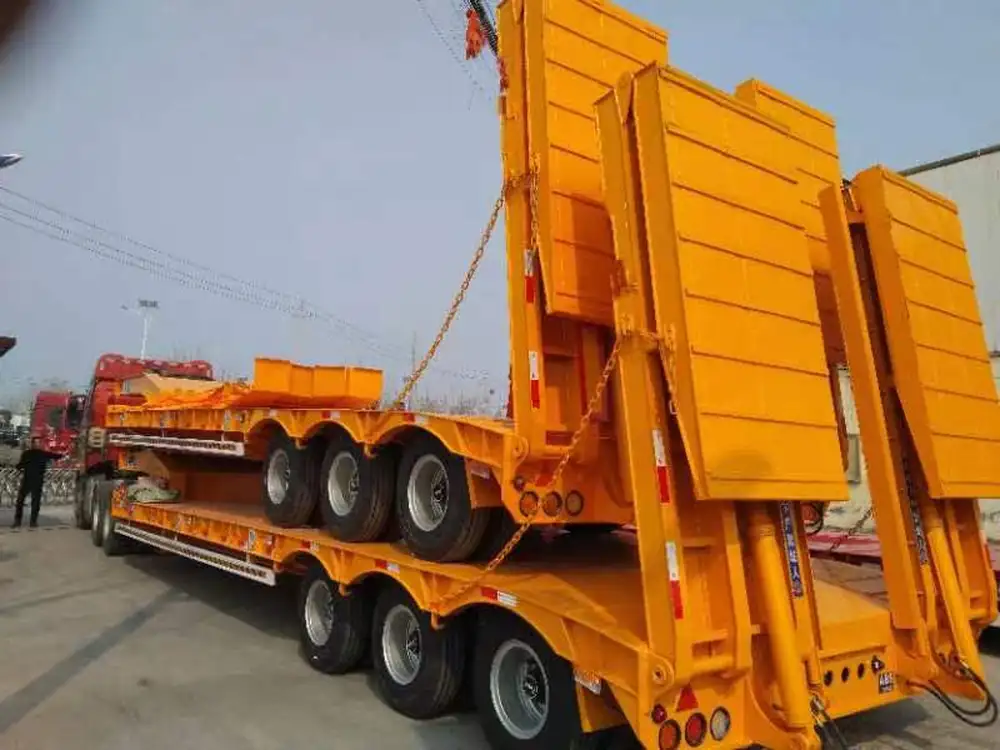
Scheduled Servicing
Adhere to the manufacturer’s recommended service schedule, including engine oil changes, filter replacements, and transmission servicing, to maintain optimal performance.
Tire Management
Monitor tire pressure and tread depth regularly, and rotate tires as needed to ensure even wear and extend their lifespan.
Brake Maintenance
Regularly check brake pads, discs, and hydraulic systems to ensure reliable braking performance and prevent costly repairs.
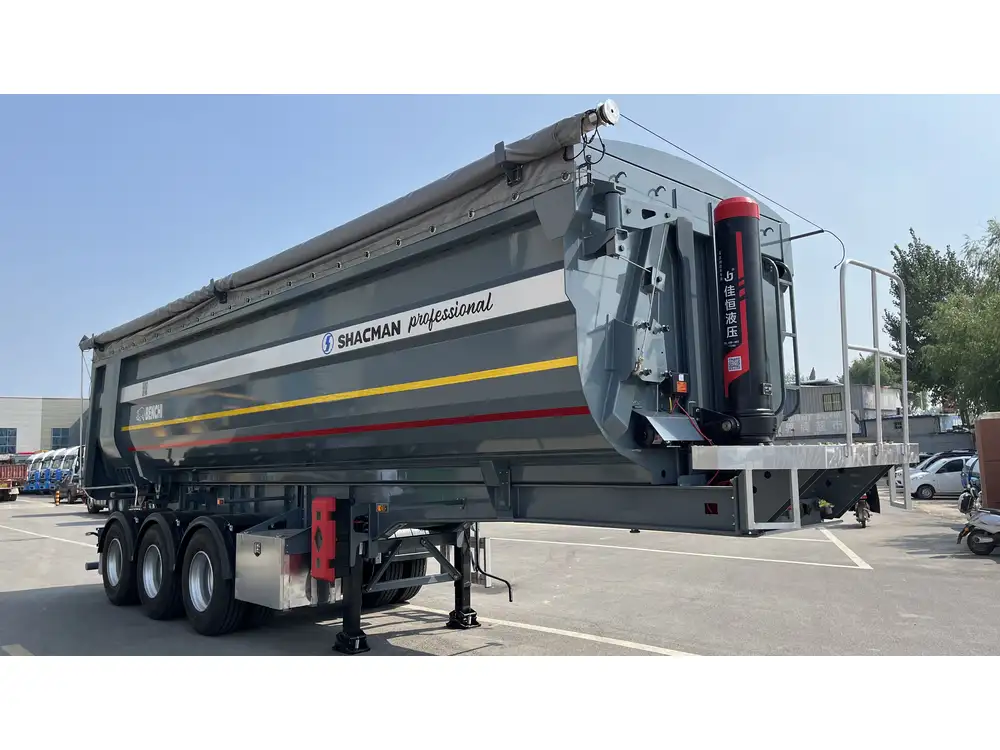
Electrical System Checks
Inspect electrical connections, batteries, and lighting systems to ensure all electrical components function correctly and safely.
Record-Keeping
Maintain detailed maintenance records to track service history, identify recurring issues, and comply with regulatory requirements.
Sustainability and the Future of Semi Trucks
As environmental concerns continue to shape the transportation industry, sustainability has become a central focus in semi truck design and operations. Key sustainability initiatives include:
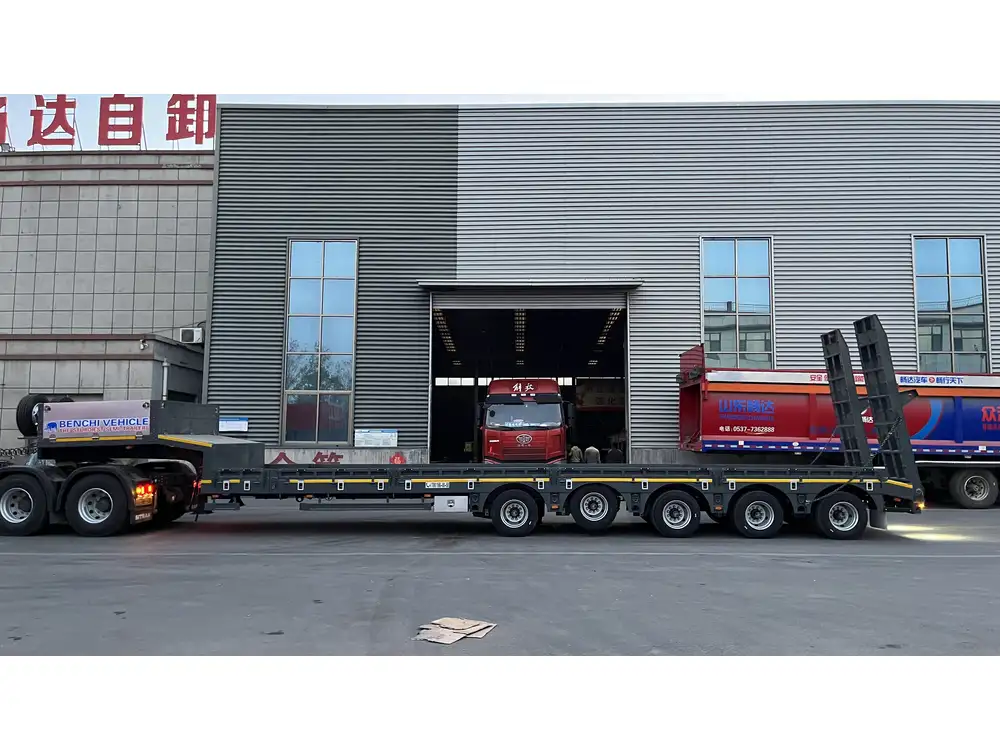
Alternative Fuels
Exploring alternative fuels such as natural gas, hydrogen, and biofuels offers pathways to reduce emissions and dependence on fossil fuels.
Aerodynamic Enhancements
Incorporating aerodynamic features reduces drag, improves fuel efficiency, and lowers greenhouse gas emissions, contributing to more sustainable operations.
Lightweight Materials
Using lightweight materials in truck construction decreases vehicle weight, enhancing fuel efficiency and reducing the environmental footprint.

Electrification
The development of electric semi trucks presents a promising solution for zero-emission transportation, particularly for regional and urban deliveries.
Renewable Energy Integration
Integrating renewable energy sources, such as solar panels on trailers, can provide auxiliary power, reducing the reliance on traditional energy sources.
The Importance of Innovation in Semi Truck Manufacturing
Innovation drives the continuous improvement of semi trucks, ensuring they meet the dynamic needs of the transportation industry. At CarMax Vehicle, we prioritize research and development to introduce cutting-edge technologies that enhance performance, safety, and sustainability.
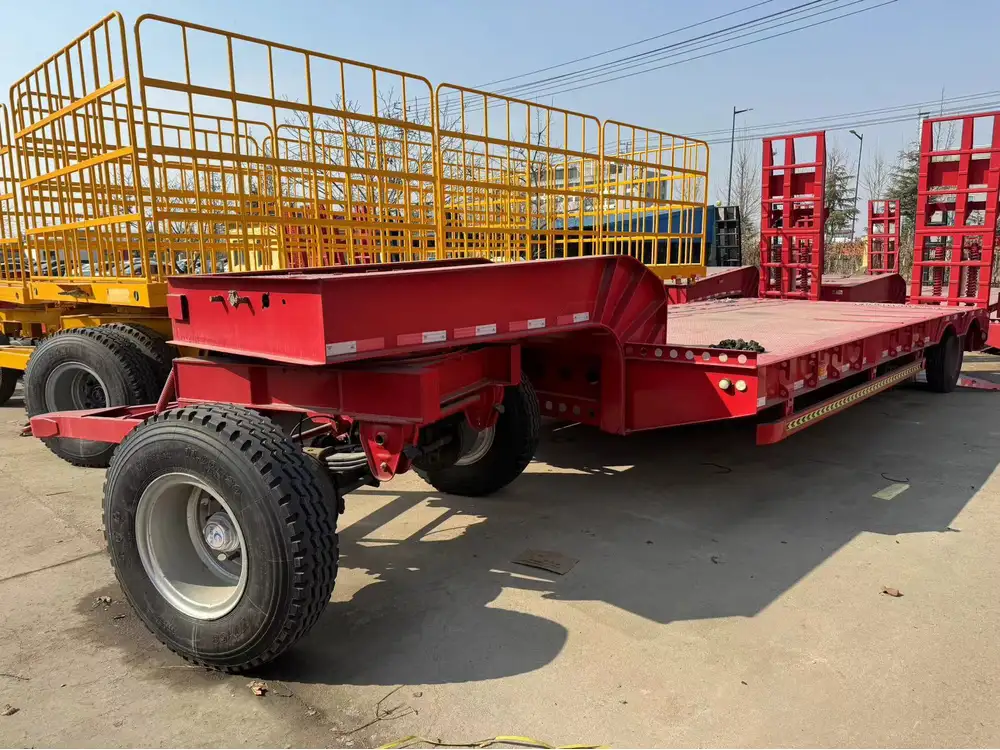
Advanced Manufacturing Techniques
Utilizing precision manufacturing techniques and automation improves production efficiency, ensuring high-quality semi trucks that meet stringent standards.
Customization and Flexibility
Offering customizable options allows customers to tailor their semi trucks to specific operational requirements, enhancing versatility and satisfaction.
Integration of Smart Technologies
Incorporating smart technologies such as IoT sensors and telematics systems provides real-time data for better decision-making and operational optimization.

Collaborative Partnerships
Collaborating with technology providers, research institutions, and industry stakeholders fosters innovation and accelerates the development of next-generation semi trucks.
The Economic Impact of Semi Trucks
Semi trucks play a crucial role in the economy by supporting various sectors and contributing to GDP growth. Their economic impact can be observed through:
Job Creation
The semi truck industry creates numerous jobs, including drivers, maintenance personnel, logistics planners, and manufacturing workers, fueling economic activity.
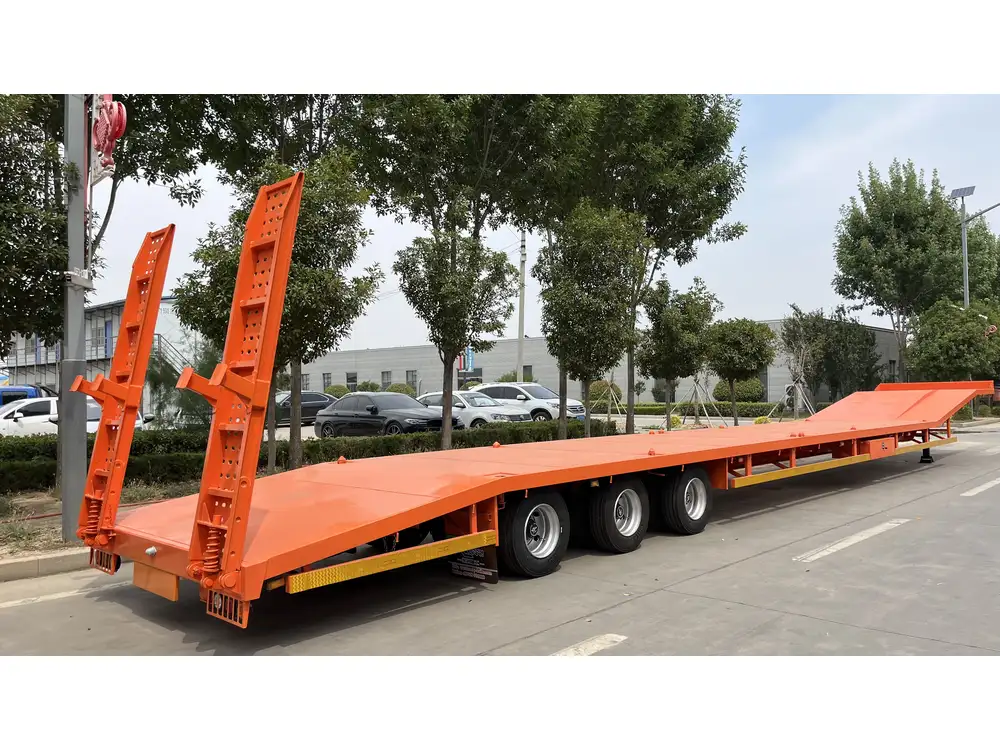
Market Accessibility
By enabling the efficient transportation of goods, semi trucks expand market accessibility for businesses, facilitating trade and economic integration.
Infrastructure Development
The demand for reliable semi trucks drives investments in transportation infrastructure, including highways, ports, and logistics hubs, enhancing overall economic resilience.
Supply Chain Efficiency
Semi trucks contribute to supply chain efficiency by ensuring timely deliveries, reducing bottlenecks, and supporting just-in-time manufacturing practices.

Challenges Facing the Semi Truck Industry
Despite their critical role, the semi truck industry faces several challenges that must be addressed to ensure future growth and sustainability.
Driver Shortage
A chronic driver shortage poses significant challenges, impacting delivery times and increasing operational costs. Addressing this issue requires enhanced training programs, better compensation, and improved working conditions.
Regulatory Compliance
Navigating complex and varying regulatory landscapes across regions can be daunting. Ensuring compliance demands robust management systems and ongoing adaptation to regulatory changes.

Rising Fuel Costs
Fluctuating fuel prices affect operational costs and profit margins. Investing in fuel-efficient technologies and alternative energy sources can mitigate these impacts.
Technological Integration
Integrating new technologies while maintaining operational reliability poses challenges. Balancing innovation with practicality is essential for seamless operations.
Environmental Concerns
Addressing environmental concerns necessitates the adoption of sustainable practices and technologies, which may involve significant upfront investments and changes in operational strategies.
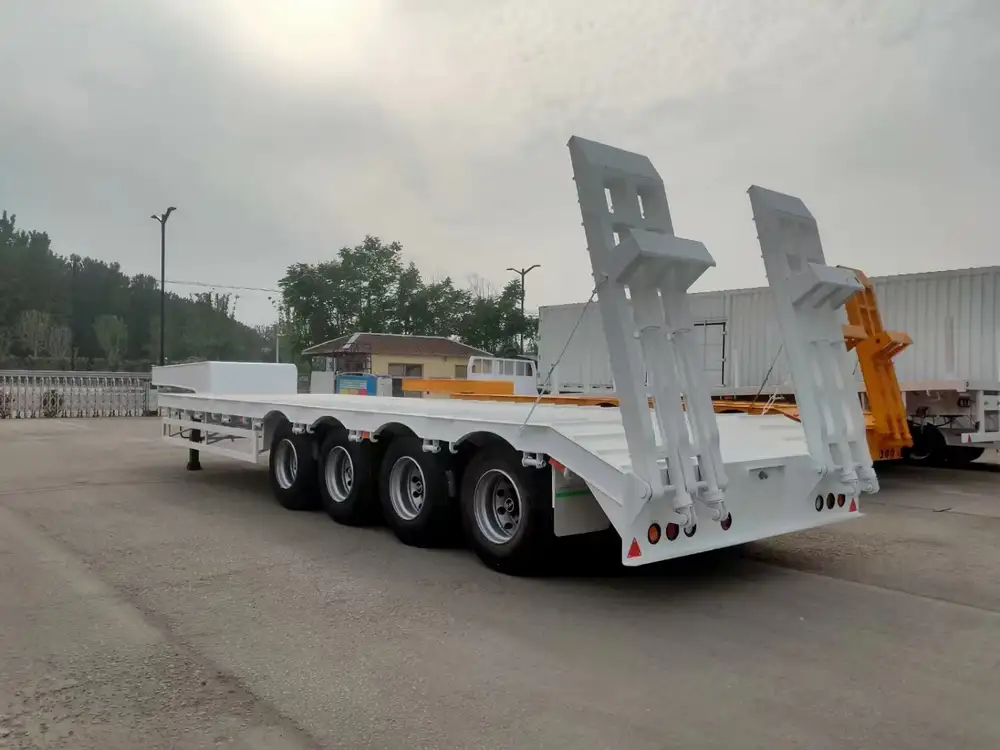
How CarMax Vehicle Leads the Way
At CarMax Vehicle, we are at the forefront of semi truck innovation, dedicated to advancing the industry through quality, reliability, and sustainability.
Commitment to Quality
Our semi trucks are built to the highest standards, ensuring durability, performance, and safety. Rigorous testing and quality control measures underpin every vehicle we produce.
Innovation-Driven Design
We prioritize research and development, integrating the latest technologies and materials to enhance the functionality and efficiency of our semi trucks.

Customer-Centric Solutions
Understanding the unique needs of our customers, we offer customizable options and comprehensive support services to ensure optimal satisfaction and operational success.
Sustainability Initiatives
We are committed to sustainability, incorporating eco-friendly designs and exploring alternative energy solutions to minimize our environmental impact and promote responsible transportation.
Comprehensive Support Network
Our extensive support network provides reliable after-sales service, maintenance, and spare parts availability, ensuring our customers experience minimal downtime and maximum productivity.
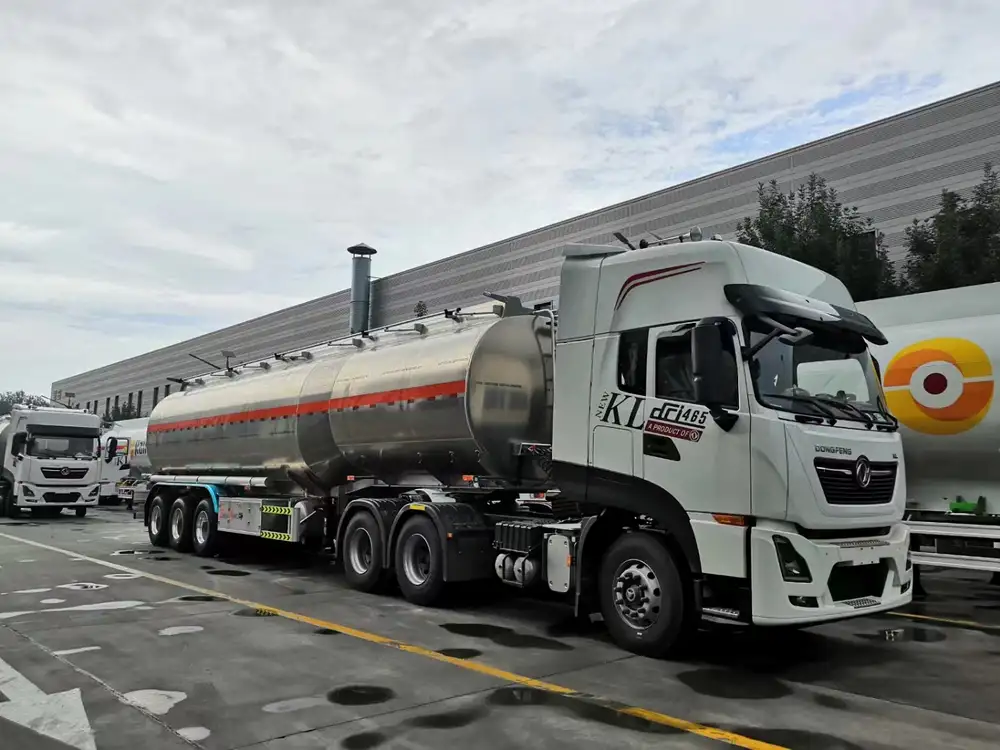
Conclusion
Semi trucks are the lifeblood of modern transportation, enabling the efficient movement of goods across vast distances. At CarMax Vehicle, we are dedicated to enhancing the capabilities and sustainability of semi trucks through continuous innovation and unwavering commitment to quality. As the transportation landscape evolves, our semi trucks will remain at the forefront, driving progress and supporting the global economy.
Frequently Asked Questions
1. What distinguishes a semi truck from other types of trucks?
A semi truck consists of a tractor unit and one or more trailers, allowing for significant payload capacity and versatility. Unlike rigid trucks, the trailer in a semi truck is not fully supported by the tractor, enabling easier maneuverability and the ability to change trailers as needed.
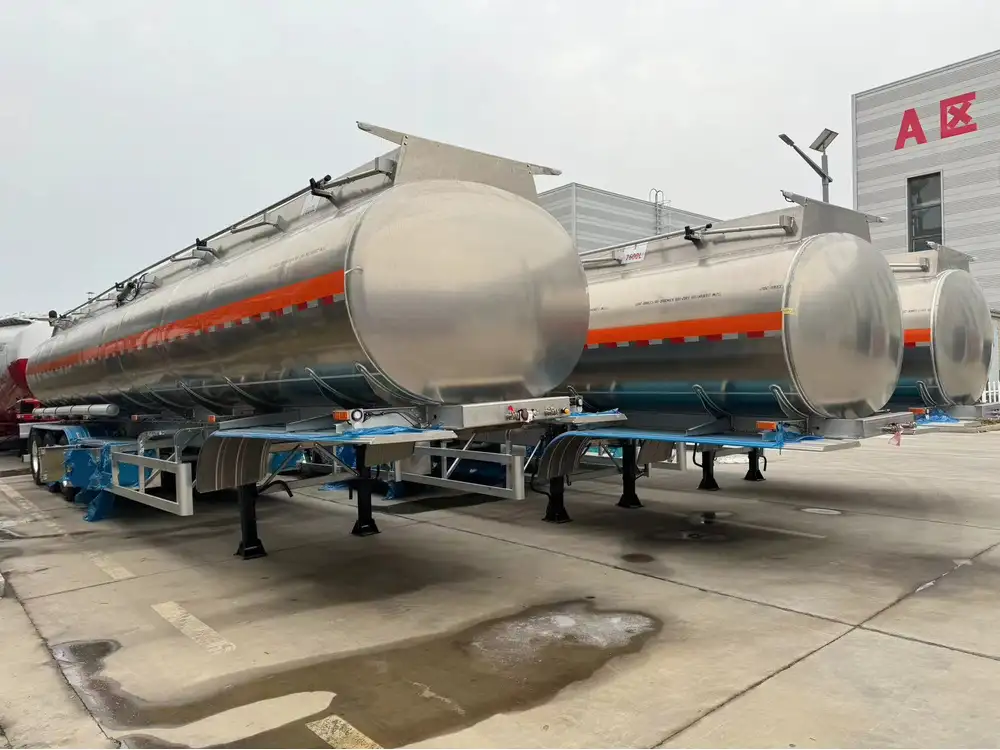
2. How fuel-efficient are modern semi trucks?
Modern semi trucks have seen substantial improvements in fuel efficiency due to advancements in engine technology, aerodynamics, and lightweight materials. Features such as aerodynamic cab designs, trailer skirts, and fuel-efficient engines contribute to reduced fuel consumption and lower operating costs.
3. What are the primary safety features in semi trucks today?
Today’s semi trucks are equipped with advanced safety features, including anti-lock braking systems (ABS), electronic stability control (ESC), collision avoidance systems, lane-keeping assistance, and automated braking. These technologies enhance driver safety and reduce the risk of accidents.
4. How does CarMax Vehicle ensure the quality of its semi trucks?
At CarMax Vehicle, we implement stringent quality control measures throughout the manufacturing process. Our semi trucks undergo rigorous testing to ensure they meet high standards of performance, durability, and safety. Additionally, we continuously invest in research and development to incorporate the latest technologies and innovations.
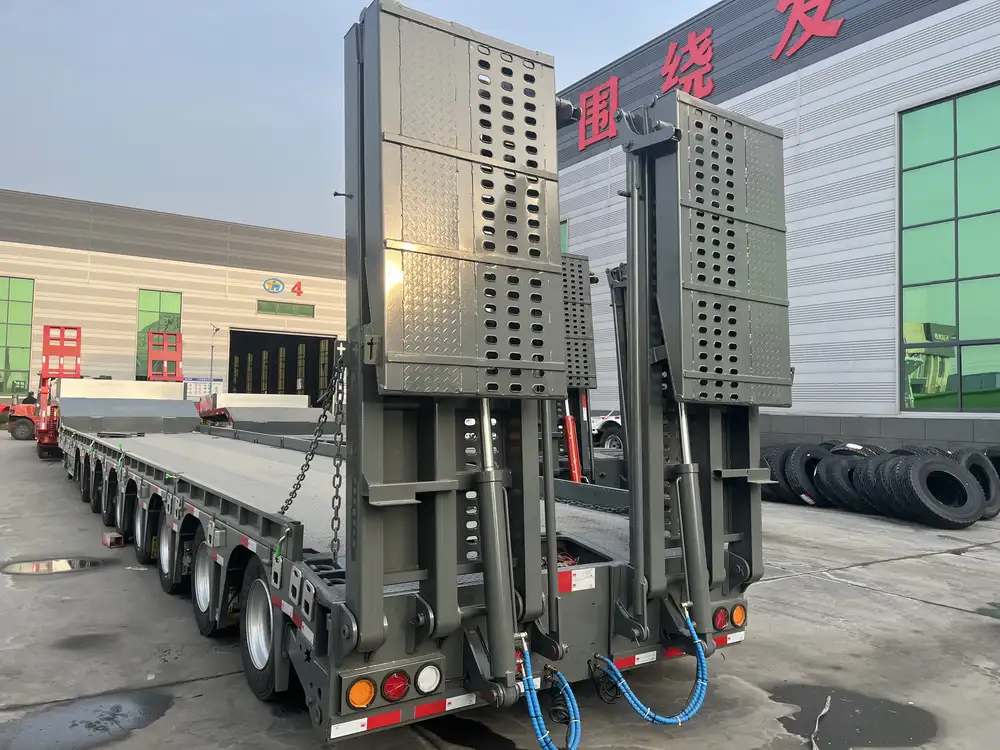
5. What are the environmental benefits of electric semi trucks?
Electric semi trucks offer numerous environmental benefits, including zero tailpipe emissions, reduced greenhouse gas emissions, lower noise pollution, and decreased reliance on fossil fuels. These advantages contribute to cleaner air, a smaller carbon footprint, and a more sustainable transportation system.



